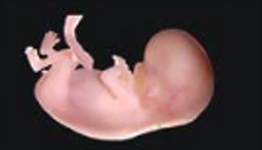Fetal Medicine Clinic

Why is the 1st trimester scan important?
Dr. Herman Ulrich Honemeyer Consultant Obstetrics & Gynaecology-Fetal Medicine

Area of expertise:
Prenatal diagnosis of fetal anomalies and Intrauterine Fetal Growth Restriction (IUGR):
- 1st trimester combined Nuchal Translucency ultrasound
- 2nd trimester detailed fetal anatomy ultrasound
- 3rd trimester ultrasound including spectral Doppler analysis of fetal and maternal blood flow
- Non-invasive fetal genetic screening by cell free fetal DNA test (NIPT)
- Invasive fetal genetic diagnostic test by Chorion Villus Sampling (CVS) and amniocentesis
Professional Experience: 35 Years
Languages Spoken: English, German, French & Spanish
Fetal medicine is an important part of the care for women with highrisk or problematic pregnancies. High-risk pregnancies need extra attention and additional monitoring. The high risk categories are based either on the previous history or a medical condition that could affect the pregnancy. Predisposing factors for high-risk pregnancies are:
- Maternal age above 35
- Smokers/alcohol and drug dependency
- Previous caesarean section deliveries, pre-eclampsia or pre-term births
- Previous terminations or pregnancy losses
- Pre-existing medical illness such as diabetes, high blood pressure, anaemia, mental illness, lupus and epilepsy
- Complications in the pregnancy such as growth restriction, infections, rhesus incompatibility
- Twins and higher order multiple pregnancy fetal abnormalities
Fetal Medicine Clinic is committed to your baby’s well-being by providing important information about your pregnancy:
First Trimester Scan
The Viability and Dating Scan
This scan is performed usually before 11 weeks to confirm the viability of the pregnancy, which is done by seeing the heart-beat of the baby. It also helps to date the pregnancy and to diagnose multiple pregnancies, if present.
Combined Down Syndrome Screening (Nuchal Translucency Scan combined with blood test)
The first trimester combined screening test is performed from 11+0 to 13+6 weeks. It confirmed the viability of the baby, dates the pregnancy, giving an estimated date of delivery (an approximate due date) and also identifies multiple pregnancies.
It provides an opportunity to screen for chromosomal abnormalities (like Downs syndrome) by measuring the nuchal translucency (fluid behind the baby’s neck). This measurement is combined with results of your blood tests (from the mother’s sample) to give a risk assessment for Down’s syndrome (Combined screening). The baby’s sex can be confirmed now with an accuracy of 75%.
You do not need to have a full bladder and you do not need to drink water before the examination.



